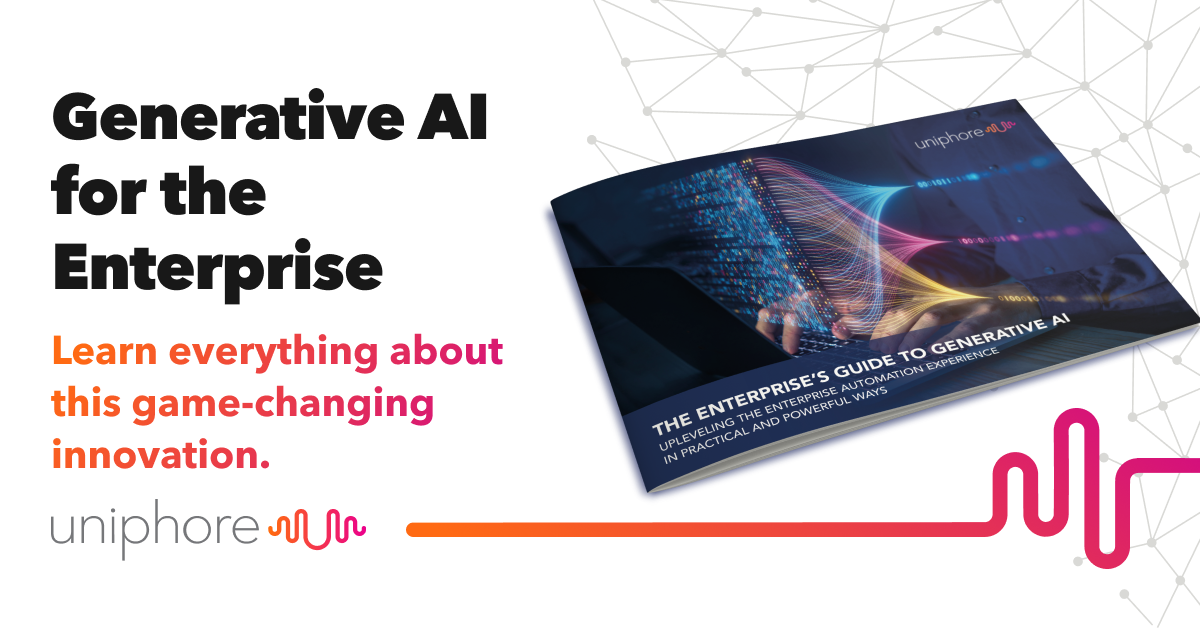Keeping The Human Touch as Banking Becomes Digital
The challenges of the pandemic thrust banks that were struggling to remain relevant and their customers who were still digital holdouts into the same situation: learn how to shift banking activity from in person to online practically overnight.
While most traditional banks did amazingly well in playing catch-up on digital transformation to make online banking more available and accessible to their customers, they didn’t necessarily perform as well when responding to the overwhelming volume of ensuing contact center interactions. Banking contact center interactions remained elevated by as much as 50% at the end of 20201 and levels are expected to remain high through 20242.
As the number of branches and branch visits plummet and online and mobile banking continue to grow, the contact center has become the main — and often only — human touchpoint for banks and their customers. Optimizing these human-to-human conversations is imperative to create the kind of positive, empathetic experiences that drive customer satisfaction and loyalty.
No one expects that banking will ever return to its pre-pandemic status quo. The digital economy is here to stay, customers have made the move to digital banking, and they expect banks to live up to their lofty expectations for frictionless experiences across all their banking customer journeys.
Conversational artificial intelligence (AI) can make that happen. Here’s how.
This playbook explains how — using advances in artificial intelligence (AI) and automation across four different strategic plays — banking contact centers can optimize the customer journey and the customer/agent conversation to drive measurable and sustainable business value.
Contact Center Volume Grows with Digital Banking Adoption


Branch traffic decreased 15% from December 2019 to December 2020


Online banking activity increased 10%


Mobile banking activity increased 20%


Contact center interactions remained elevated by as much as 50%
Source: “Why Contact Centers Are a Key Part of a Human+Digital Banking Strategy,”
Kevin Halsey, The Financial Brand, December 2020
Improving the Customer Experience Starts with a Better Agent Experience
While many banks have approached digital transformation and online banking from the perspective of self-service, most haven’t focused nearly enough attention on optimizing the human interactions that happen in other parts of the customer journey. Today’s contact center is replacing in-person assistance and advice that took place in branch offices, yet very little has been done to transform the customer service agent’s experience.
Delivering human empathy and helping customers understand complex issues beyond account balances are more important than ever if banks want to retain their customer base. In fact, according to Accenture, three out of every four customers indicate their contact center experiences influence their purchasing decisions in banking. Even more important, one-third of all customers say that just one bad experience would tempt them to walk away from a brand they liked3.
But agents are overwhelmed and stressed. Their own experiences are often anything but positive. How can we expect them to deliver an empathetic customer experience when we haven’t helped them improve their own experience?
That’s why delivering a great customer experience starts with a better agent experience. And a better agent experiences starts with conversational AI. By augmenting and enhancing humans in the contact center through conversational understanding, AI helps agents focus on the interaction with the customer, resolve issues more quickly and effectively, and minimize the amount of time they spend on tedious, repetitive tasks that take time away from
helping other customers.
“To compete successfully and thrive, incumbent banks must become ‘AI-first’ institutions, adopting AI technologies as the foundation for new value propositions and distinctive customer experiences.”
Source: “AI-Bank of the Future: Can Banks Meet the AI Challenge?”
McKinsey & Company, September 2020
Understanding Today’s Conversational AI Capabilities
Conversational AI technology specifically developed for the contact center is much different than early AI products and solutions that banks may have adopted in the past.
Until now, superficial or point AI solutions did not span the entire customer conversation, leading to mediocre enhancements that didn’t improve the agent experience. That’s because, while most solutions claim they are based on conversational AI, in reality they are limited in their ability to understand human-to-human conversations and instead are trained to recognize certain keywords and little else. Any success with these types of solutions often comes at the expense of the customer and agent experience.
In comparison, domain-specific conversational AI for financial services contact centers is making huge leaps in sophistication. Banks and other institutions are already seeing transformative business value using conversational AI and automation to improve
the experience for both customers and agents.
A conversational automation platform powered by domain-specific AI combines the following advanced technologies to optimize and automate the entire customer conversation and banking journeys across channels:
Domain-specific conversational AI: A set of advanced AI technologies that recognizes and comprehends human language in multiple languages and uses this understanding to optimize and analyze conversations in and across multiple channels.
Natural language processing and understanding (NLP/NLU): NLP and NLU are components of conversational AI that help computers understand and interpret human language.
Robotic process automation (RPA): RPA is software that can emulate the actions of a human interacting with digital systems to automate repetitive tasks and end-to-end business processes.
AI analytics/intelligent decision support: Intelligent decision support uses machine learning and reasoning to discover insights, find patterns, and uncover relationships in data, automating the steps that humans would take if they could exhaustively analyze large datasets.
Intelligent applications: AI-powered software called intelligent applications includes rules engines, user interfaces, notifications, and alerts, and other components that handle specific use cases within the contact center, such as intelligent agent assistance, intelligent conversational self-service, and others.
Enhancing the Conversation and the Experience
Conversational AI optimizes every conversation by helping agents be more productive and empathetic while personalizing the experience for customers. With a conversational automation platform that understands the customer’s real intent and sentiment, banking contact centers can deliver a positive conversational experience that drives customer satisfaction.
Questions to ask
- Do your agents have in-call coaching guidance based on understanding customer intent, sentiment, and emotion?
- Do agents have immediate access to customer information, such as customer balance, without having to manually look up information in multiple systems?
- How effectively can agents resolve customer questions and issues?
Action List
- Use conversational AI for real-time analysis of customer context including sentiment, emotion, and intent to help agents with in-call coaching alerts, giving them the insight to be more empathetic as well as suggesting next best action to recommend the appropriate product or service for the customer.
- By identifying patterns and changes to them, such as cash flow trends, conversational AI can alert agents in real time about products and services that would be most relevant and beneficial for specific customers, improving conversions as well as customer satisfaction.
Outcomes
- Improves the agent and customer experience
- Drives agent sales effectiveness and increases revenue.
- Reduces friction in the customer journey and improves satisfaction.




Minimizing After-Call Work
What happens after the call ends is just as important to your bank’s business outcomes as what happens during the conversation. The time spent in after-call work (ACW) — including categorizing and summarizing the call, updating systems, and taking follow-up actions — impacts average handle time, call waiting times, customer satisfaction, costs, agent productivity, and agent satisfaction.
Using conversational AI to automate ACW improves the experience for both your customers and your agents, while driving productivity and accuracy.
Questions to ask
- How much time do your agents spend on ACW?
- How much time is spent summarizing the call?
- How long are average handle times (AHT) and wait times for customers?
- How accurate are call notations and summaries?
Action List
- Automate ACW and call disposition across high-value banking journeys such as mortgage refinance applications to ensure higher accuracy and reduce average handle time (AHT), which shortens wait times for customers.
- Deploy a conversational automation solution that automatically listens and transcribes calls in real time. Then after a call ends, the solution should automatically create and present the call summary to the agent to edit and confirm.
- Choose a solution that automatically updates the CRM system as well as others and provides automated call disposition to maintain the quality of call categories.
Outcomes
- Makes it easier for agents to focus on the customer conversation.
- Improves accuracy of call summaries and dispositions.
- Reduces AHT and shortens wait times for customers.
- Increases agent productivity.




Capturing and Fulfilling Promises Made During the Conversation
A promise made that is not kept or tasks that are not performed correctly can quickly negate the positive effects of a good conversational experience. Poor promises management directly impacts your call handling times, wait times, customer satisfaction, and loyalty as measured by your Net Promoter Score (NPS).
A conversational automation platform with promises management can automatically recognize, log, and enrich commitments/promises. After the call, it sends the customer a summary of the promises made to align expectations and then automatically manages the fulfillment of the promises, which improves NPS, reduces repeat calls, and shortens processing time.
Questions to ask
- How are commitments (also known as promises) logged today?
- How are commitments fulfilled?
- How many repeat calls are due to missed commitments and follow-ups?
- What additional time is added to call handle times to address repeat and escalated calls due to missed commitments?
Action List
- Choose a platform with conversational AI and RPA designed to automate promises management, such as offering a credit on refinancing a home mortgage, reducing closing fees on a loan, or scheduling an appraisal.
- Deploy a solution that automatically logs and enriches promises and commitments made by agents in real time.
- Use automation to align expectations with customers immediately following the call.
- Take advantage of RPA to automate fulfillment and reduce manual tasks after the call.
Outcomes
- Reduces repeat calls and improves customer satisfaction and NPS.
- Shortens AHT by reducing agent time and effort.
- Improves agent productivity.
- Reduces call waiting time by freeing up agents.
- Reduces the number of screens agents need to use to execute workflows that register and fulfill promises made.




Extracting Insight from Every Conversation
By understanding and analyzing every conversation, banks gain deep insight into trends and opportunities for improving strategic contact center outcomes. A conversational automation platform that includes AI-powered interaction analytics for voice, email, and chat interactions helps banks uncover the true reasons for customer churn, drive 100% compliance, and identify other core, customer- and agent-centric opportunities for planning and operational improvements.
Questions to ask
- Can you analyze 100% of your customer interactions to better identify trends and points of friction?
- What percentage of conversations do you currently review for performance?
- Do you have an integrated view of intent, emotion, and sentiment across all conversations and channels?
- Do you have predictive analytics that model propensity to buy to improve sales outcomes?
- Can you capture and report on unsolicited feedback within omnichannel customer conversations?
Action List
- Implement AI-powered interaction analytics to monitor and analyze all customer conversations across multiple channels.
- Choose a solution that can automatically track and score compliance as well as automate agent feedback and performance management.
- Use interaction analytics that understand sentiment, emotion, and intent to accurately identify complaints and uncover issues impacting satisfaction and churn.
- Harness the voice of the customer using analytics that identify trending topics and behavior patterns so your bank can adapt to changing customer needs and concerns.
Outcomes
- Improves customer satisfaction and NPS.
- Drives 100% compliance while reducing time spent on compliance management.
- Enables data-driven operational improvements.
- Increases sales effectiveness and agent performance.
- Optimizes the customer journey based on conversational insights.
Optimizing Real Conversations and Outcomes
A financial services company in the U.S. mortgage industry faced quality assurance, efficiency, and performance issues within its contact center. It deployed Uniphore U-Assist and Uniphore U-Analyze — solutions that are part of the Uniphore Conversational Automation platform — for realtime agent guidance and interaction analytics to surface insights about the customer and agent experience as well as agent performance.
With Uniphore Conversational Automation, the company can now:
- Identify insights and trends for customer call patterns and drivers
- Analyze agent performance and behavior to inform quality management
- Understand areas of friction and update agent training and coaching to address them
- Automate after-call work
Results:
- 7% reduction in time spent on after-call work
- Streamlined quality management using insights from call analyses to focus coaching efforts
- Improved agent training through insights from 100% call monitoring and analysis
- Improved accuracy by automating call categorization
Next Steps
With branches becoming scarce and customers adopting digital banking, banks must focus on optimizing the remaining human touchpoints with their customers. As the primary interface with banking customers in the digital world, contact center agents need the help of smart machines powered by conversational AI to augment and
enhance their conversations with customers.
A conversational automation platform is the foundation for optimizing every conversation to transform the customer and agent experience, drive customer satisfaction, and generate greater loyalty and revenue.
- “Why Contact Centers Are a Key Part of a Human+Digital Banking Strategy,”
Kevin Halsey, The Financial Brand, December 2020 - “US Banks’ Call Centers and Digital Tools Jockey for Customer Service Dominance,”
Greg Magana, BusinessInsider, March 2021 - “Contact Center Modernization: How to Make Customer Loyalty and Cost Reductions Add Up,”
PwC, 2020.
